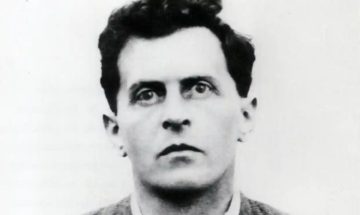Anil Gomes in The Guardian:
 Ludwig Wittgenstein joined the army the day after his native Austria-Hungary declared war on Russia in August 1914. He had been serving for almost three months when he received word that his brother Paul, a concert pianist, had lost his right arm in battle. “Again and again,” he wrote in his notebook, “I have to think of poor Paul, who has so suddenly been deprived of his vocation! How terrible! What philosophical outlook would it take to overcome such a thing? Can it even happen except through suicide!”
Ludwig Wittgenstein joined the army the day after his native Austria-Hungary declared war on Russia in August 1914. He had been serving for almost three months when he received word that his brother Paul, a concert pianist, had lost his right arm in battle. “Again and again,” he wrote in his notebook, “I have to think of poor Paul, who has so suddenly been deprived of his vocation! How terrible! What philosophical outlook would it take to overcome such a thing? Can it even happen except through suicide!”
Wittgenstein was an unusual philosopher. He became obsessed with the foundations of logic while an engineering student and presented himself to Bertrand Russell in Cambridge, ready to solve all its problems. His intent was to provide an account of logic that was free from paradox and his solution came in the form of the Tractatus Logico-Philosophicus, sent to Russell from the Italian prisoner-of-war camp in which Wittgenstein was held at the end of the first world war.
More here.
